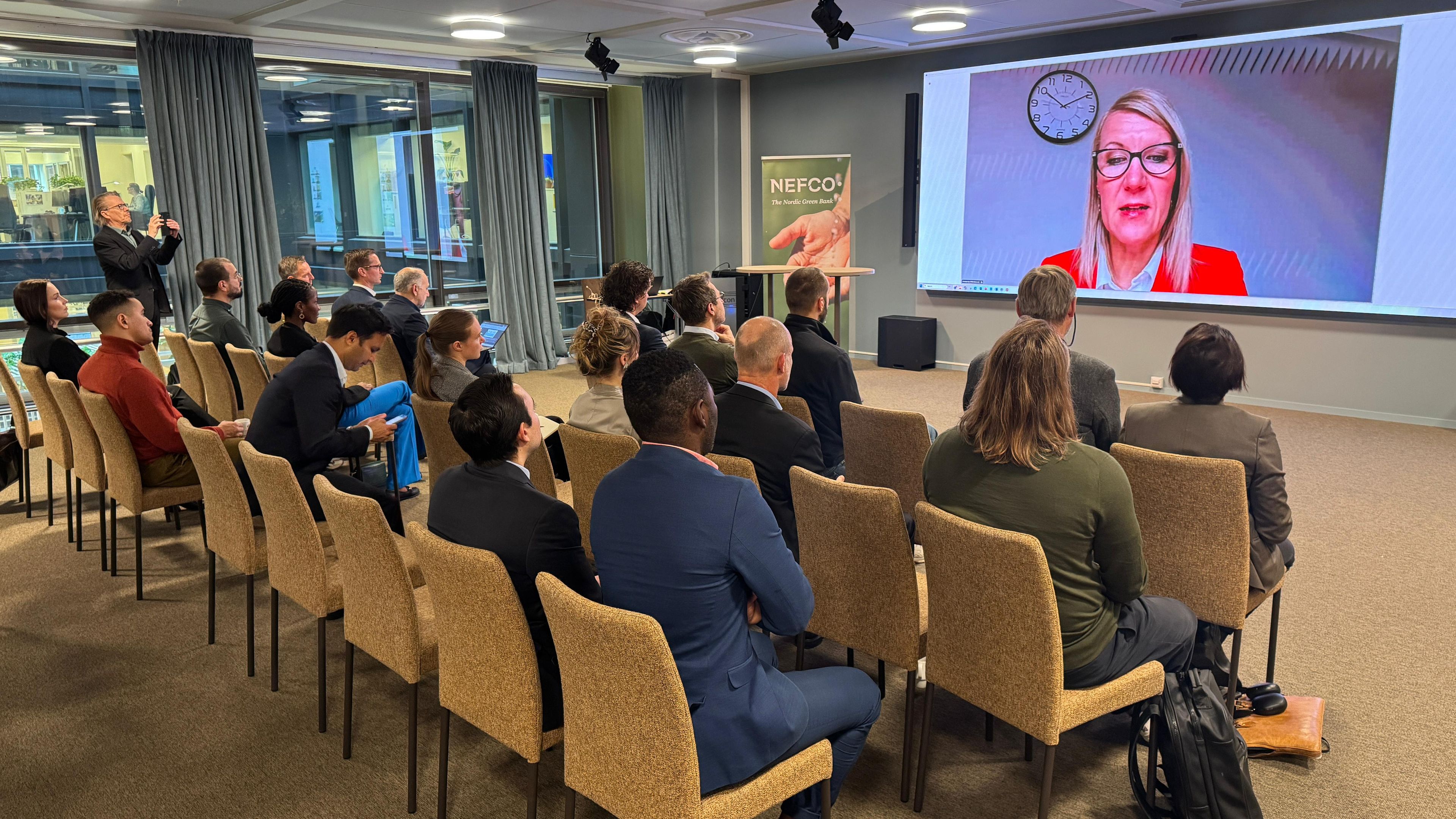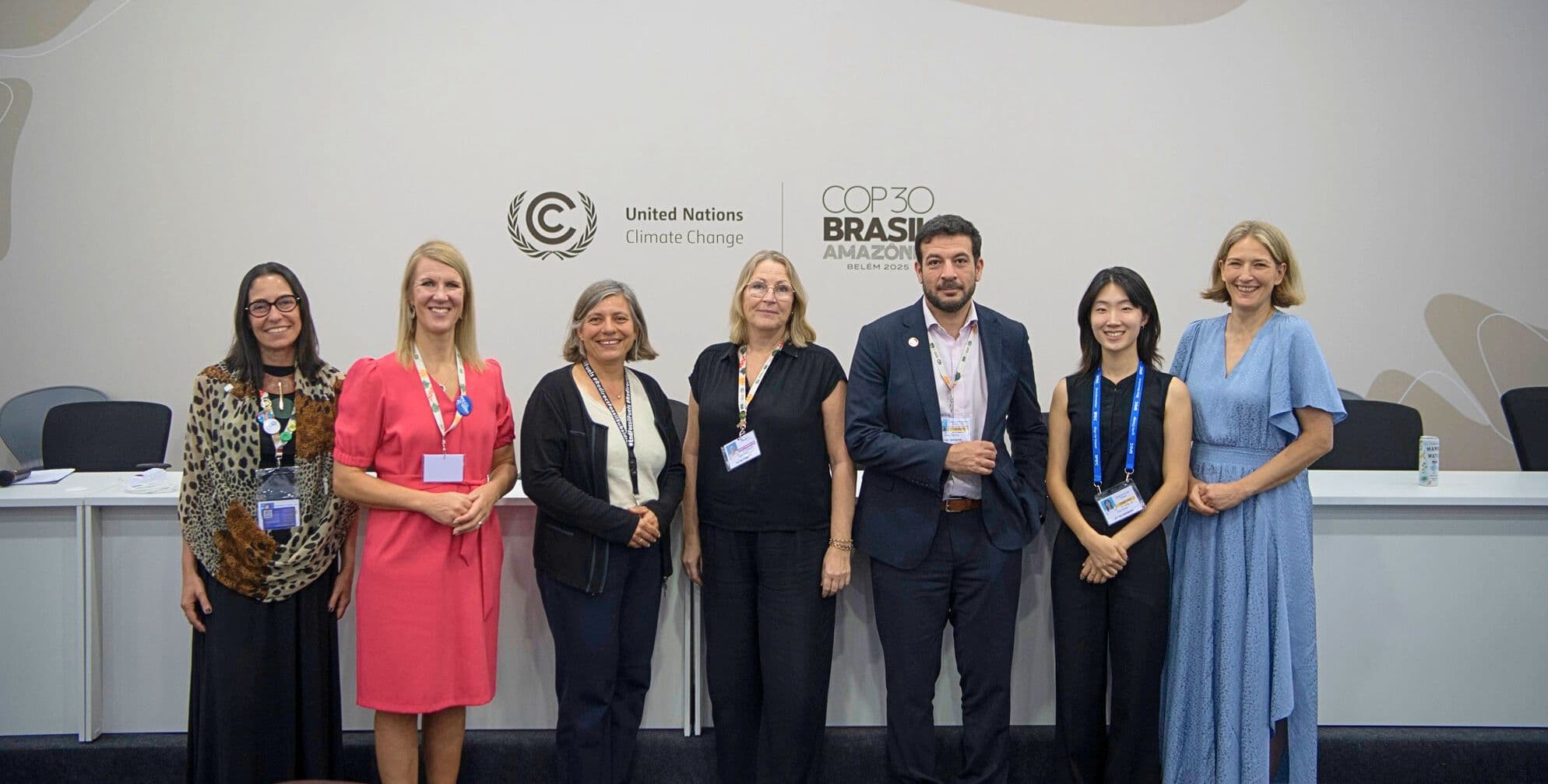At the Nordic Dialogue held ahead of COP30, government representatives, negotiators, and business leaders reaffirmed the region’s united approach to climate leadership. The discussions focused on how the Nordics can strengthen public–private cooperation, close the global ambition gap, and contribute to more predictable and effective climate policy at both regional and international levels.
Reaffirming Nordic climate leadership
According to Head of negotiations of Finland, Marjo Nummelin, Nordic leadership is needed now more than ever. In reaffirming their longstanding commitment to climate leadership, the Nordic representatives emphasized the importance of science-based decision-making, and inclusive global platforms such as the Paris Agreement. Both Nummelin and Sari Multala, Minister for Climate and Environment of Finland, stressed the need to uphold multilateralism and science as the foundation for climate policy, especially in challenging geopolitical times when global cooperation is under strain.
As stated by the Minister
“The world is not on track to meet the objectives of the Paris Agreement. Climate action is not just a necessity, but an existential imperative. Limiting global temperature rise to 1.5°C would avoid catastrophic consequences.”
Ultimately, the dialogue emphasized that the Nordics see climate action as a matter of global responsibility, requiring determined, effective, and realistic policies, and that their leadership is rooted in both ambition and implementation.
Rising ambition for COP30
Nordic negotiators stressed that while progress has been made, the world remains off track from credible climate mitigation goals. As was well put by the Head of Negotiations of Sweden Mattias Frumerie, for the Nordics, COP30 will be about raising the aggregate level of ambition in nationally determined contributions (NDCs) and determining what can jointly be done, within and beyond the UNFCCC, to support implementation.
Additionally, adaptation emerged as a central theme, especially in the context of Brazil’s COP30 presidency and its role as part of the mandated negotiation agenda. Nordic negotiators stressed the need for measures for progress and balancednegotiation outcomes across mitigation and adaptation.
Accelerating private sector momentum
Companies across the Nordics are investing in carbon removal technologies, renewable energy, and transition plans for key sectors demonstrating that solutions already exist within the region. In her keynote, Minister Multala emphasized that Finland’s most effective contribution to combating climate change lies in leveraging its climate solutions to replace harmful, outdated practices both domestically and globally. The key challenge in expanding this climate handprint is to showcase, scale, and deploy these innovations internationally and more effectively, enabling global impact.
Minister Multala further noted that companies are increasingly urging governments to adopt higher climate ambition and provide greater policy predictability, viewing ambitious targets as essential for a stable investment environment. At the same time, businesses play a crucial role in proving that such targets are achievable, thereby reinforcing confidence among policymakers.
Nordic companies are encouraged to take an active role at COP30 — building global partnerships, particularly with emerging markets, and contributing both to the formal negotiations and to the broader Action Agenda.
Expanding the role of Action Agenda and coalitions of willing
The discussions highlighted the growing importance of the Action Agenda and various coalitions of the willing, particularly as formal UNFCCC decision-making continues to face challenges in the face of geopolitical turmoil. These initiatives are increasingly seen as complementary to binding targets and national climate plans, offering alternative pathways for achieving emission reductions and adaptation through collaboration among proactive countries, companies, and other stakeholders.
Under Brazil’s COP30 presidency, the Action Agenda has been given significant prominence. It is being structured around the themes of the Global Stocktake, with a strong focus on improving the accountability and transparency of voluntary initiatives and declarations. The value of the Action Agenda is in empowering front-runners and coalitions to move implementation forward. The expectation is that these pioneering efforts will help shape and inspire future NDCs and emission targets.
There was broad consensus that, while the Action Agenda should not replace the official negotiation track, it plays a crucial role in maintaining momentum, fostering partnerships, and advancing climate solutions especially when progress through multilateral channels is slow.


